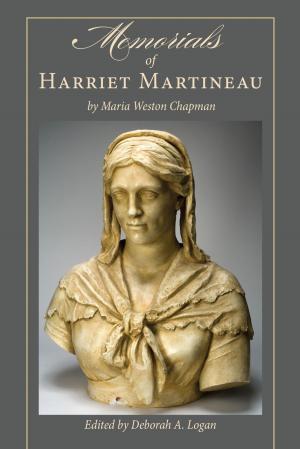The Memoirs of Toussaint and Isaac Louverture
Representing the Black Masculine Subject in Narratives of Mourning and Loss
Fiction & Literature, Literary Theory & Criticism, Central & South American, Nonfiction, Social & Cultural Studies, Social Science, Gender Studies, Biography & Memoir| Author: | Arthur F. Saint-Aubin | ISBN: | 9781611461961 |
| Publisher: | Lehigh University Press | Publication: | July 15, 2015 |
| Imprint: | Lehigh University Press | Language: | English |
| Author: | Arthur F. Saint-Aubin |
| ISBN: | 9781611461961 |
| Publisher: | Lehigh University Press |
| Publication: | July 15, 2015 |
| Imprint: | Lehigh University Press |
| Language: | English |
This book examines the memoir of Toussaint Louverture—a former slave, general in the French army, and leader of the Haitian Revolution—and the memoir of his son, Isaac.
The Revolution and its leaders have been studied and written about extensively. Until recently (2004), however, the memoir of Toussaint has received little attention—and only as a historical document. This is the first study that explores the 1802 work foremost as a literary text, a creative production that deploys the techniques of fiction and drama to make truth claims about the past; moreover, this is the first book-length study of Isaac Louverture’s memoir. The two texts are read as examples of how black men thought of themselves as “men” (citizens) and, therefore, how they expressed their masculinity, at that historical moment, as experiences of mourning and loss.
This study builds upon three areas of scholarship: the tradition of memoir writing; historicist readings of Toussaint’s memoir; and descriptions and theories of men and masculinity within the black Atlantic.
The study distinguishes itself in ways that will make it of interest to more than just historians: in addition to using the intersection of race and masculinity as an analytical tool, it speaks to the nature of literary creativity and it draws from studies examining the relationship between history, memory, and fiction. As a result, scholars and students in literary and cultural criticism, as well as those in gender and diasporic studies, will also find this study of interest and value.
This book examines the memoir of Toussaint Louverture—a former slave, general in the French army, and leader of the Haitian Revolution—and the memoir of his son, Isaac.
The Revolution and its leaders have been studied and written about extensively. Until recently (2004), however, the memoir of Toussaint has received little attention—and only as a historical document. This is the first study that explores the 1802 work foremost as a literary text, a creative production that deploys the techniques of fiction and drama to make truth claims about the past; moreover, this is the first book-length study of Isaac Louverture’s memoir. The two texts are read as examples of how black men thought of themselves as “men” (citizens) and, therefore, how they expressed their masculinity, at that historical moment, as experiences of mourning and loss.
This study builds upon three areas of scholarship: the tradition of memoir writing; historicist readings of Toussaint’s memoir; and descriptions and theories of men and masculinity within the black Atlantic.
The study distinguishes itself in ways that will make it of interest to more than just historians: in addition to using the intersection of race and masculinity as an analytical tool, it speaks to the nature of literary creativity and it draws from studies examining the relationship between history, memory, and fiction. As a result, scholars and students in literary and cultural criticism, as well as those in gender and diasporic studies, will also find this study of interest and value.















